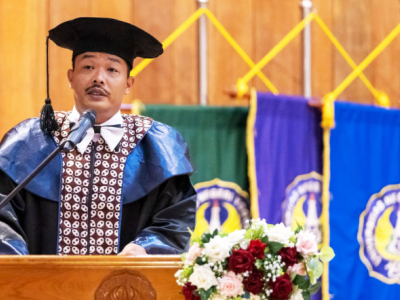Performance-Based Assessment in Physical Education Learning

Prof. Guntur said that Physical Education builds students' cognitive, affective and psychomotor aspects. Physical Education is an educational process that deals with the development and use of individual movement abilities that are voluntary, useful, and directly related to mental, social and emotional responses. Physical Education, which in the curriculum is called Physical Education, Sports and Health, is a subject that exists at all levels of education ranging from elementary, junior high, to high school and has a vital role in providing opportunities for students to be directly involved in various learning experiences through selected physical activities. Then, Prof. Guntur explained that the quality of learning can be achieved through improving the quality of learning and the quality of the assessment system because both are interrelated.
"The implementation of the assessment of student learning outcomes in Physical Education, Sports and Health Lessons will run well if the teacher understands measuring instruments and how to compile them according to the characteristics of the material," explained Prof. Guntur.
He also explained that the problems often faced by teachers in assessing student learning outcomes lie in the validity and reliability of the measuring instruments used. Teachers still conduct many results-oriented assessments, and the assessment results are often influenced by subjectivity because the implementation is carried out alone without involving other teachers (Collaborators). Performance-based assessment is a form of assessment that requires students to practice and apply the knowledge that has been learned in various contexts according to the criteria.
"The principles of implementing performance assessment are an inseparable part of the learning process, reflecting problems encountered in daily life and school world problems, using various methods and criteria that are following the characteristics and essence of learning experiences, holistic in nature covering all aspects of learning objectives," he said.
Prof. Guntur also outlined the steps of performance assessment: determining performance tasks, determining rubrics, conducting performance assessments and assessing performance results. The collection of evidence of learning and student learning outcomes in physical education learning in schools is carried out by teachers while still paying attention to the principles of accurate, economical assessment and encouraging the quality of learning. (Author: Khairani Faizah, Editor: Sudaryono, Tj.Lak)

